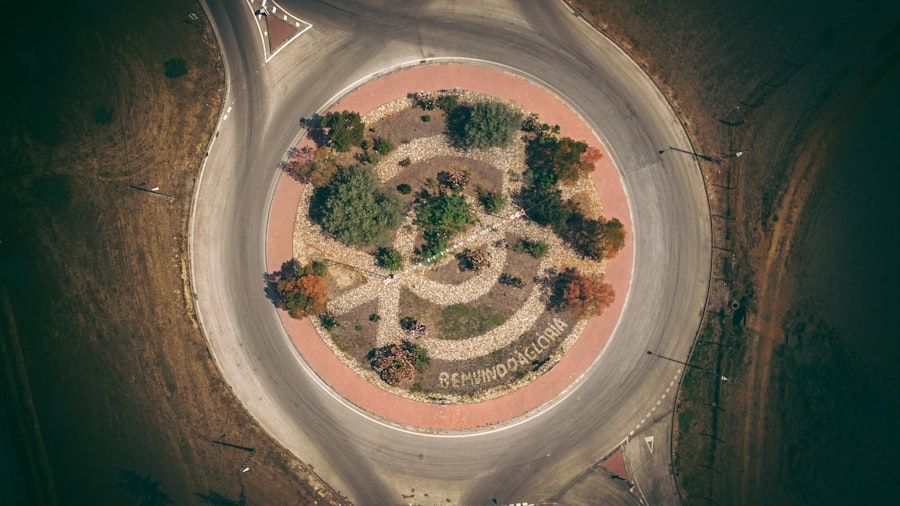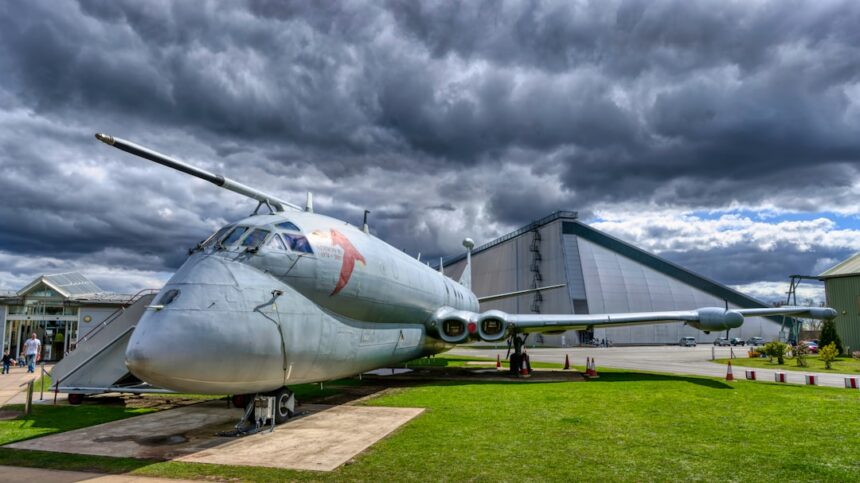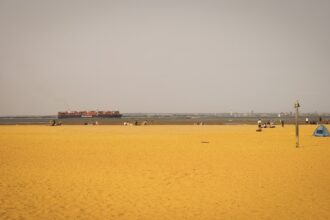The Cold War, a period marked by ideological conflict between the United States and the Soviet Union, had profound implications for Africa. Emerging from colonial rule in the mid-20th century, many African nations found themselves caught in the crossfire of this global struggle. The superpowers sought to expand their influence by supporting various liberation movements and governments, often leading to proxy wars and political instability.
Countries like Angola, Mozambique, and Ethiopia became battlegrounds for competing ideologies, with the U.S. backing anti-communist regimes while the Soviet Union supported leftist movements. This dynamic not only shaped the political landscape of Africa but also left a legacy of conflict and division that would resonate for decades.
As the Cold War progressed, African leaders began to navigate this complex geopolitical terrain with varying degrees of success. Some, like Julius Nyerere of Tanzania, advocated for non-alignment, seeking to maintain independence from both superpowers. Others, such as Robert Mugabe in Zimbabwe, embraced socialist ideologies, aligning more closely with the Soviet bloc.
The struggle for independence and self-determination was often overshadowed by the larger geopolitical games being played, leading to a situation where African nations were frequently pawns in a much larger chess match. The end of the Cold War did not erase these historical complexities; instead, it set the stage for a new era of competition and influence that would emerge in the 21st century.
Key Takeaways
- Africa’s rich resources have made it a central arena in the new Cold War among global powers.
- China and Russia are expanding their influence in Africa through economic investments and resource access.
- The United States and the European Union are actively strategizing to maintain and grow their presence on the continent.
- African leaders play a crucial role in balancing foreign interests while pursuing national development goals.
- The evolving geopolitical competition presents both challenges and opportunities for Africa’s future global position.
The Role of African Resources in the New Cold War
In the contemporary context, Africa’s vast natural resources have become a focal point in the renewed competition among global powers. The continent is rich in minerals, oil, and gas, making it an attractive target for countries seeking to secure energy supplies and raw materials. As nations grapple with energy transitions and economic recovery post-pandemic, Africa’s resources are increasingly viewed as strategic assets.
This has led to a resurgence of interest from both traditional powers like the United States and emerging players such as China and Russia, all vying for access to these valuable commodities. The significance of African resources extends beyond mere economic gain; it also plays a crucial role in geopolitical strategy. For instance, China’s Belt and Road Initiative has seen substantial investments in African infrastructure projects aimed at facilitating resource extraction and exportation.
Similarly, Russia has sought to establish military and economic ties with resource-rich nations, leveraging arms deals and energy partnerships to gain influence. This competition for resources not only shapes bilateral relations but also impacts local economies and governance structures, as countries must navigate the demands and expectations of foreign powers while striving to harness their own wealth for national development.
The Competition for Influence in African Countries

The competition for influence in Africa has intensified as global powers recognize the continent’s strategic importance in the 21st century. The United States has historically viewed Africa through a lens of security and counterterrorism, focusing on stabilizing regions plagued by extremism. However, this approach has evolved to include economic partnerships and trade agreements aimed at fostering development.
The U.S. has sought to counter China’s growing presence by promoting democratic governance and human rights as cornerstones of its engagement strategy. On the other hand, China has adopted a more pragmatic approach, emphasizing economic cooperation over political conditions.
By investing heavily in infrastructure projects and providing loans with fewer strings attached, China has positioned itself as a key partner for many African nations seeking rapid development. This has led to a growing perception among some African leaders that aligning with China offers a more favorable alternative to Western engagement. As a result, countries like Ethiopia and Kenya have increasingly turned to Chinese investments to bolster their economies, further complicating the geopolitical landscape.
The Impact of the New Cold War on African Economies
| Metric | Pre-New Cold War (2010-2015) | During New Cold War (2016-2023) | Impact Description |
|---|---|---|---|
| Foreign Direct Investment (FDI) Inflows (Billion USD) | 45 | 38 | Decline due to geopolitical tensions and shifting alliances |
| Trade Volume with China (Billion USD) | 120 | 160 | Increased trade as China strengthens economic ties |
| Trade Volume with Western Countries (Billion USD) | 150 | 110 | Reduced trade due to sanctions and strategic competition |
| Infrastructure Investment (Billion USD) | 30 | 50 | Boost from new Cold War-related infrastructure projects |
| Debt Levels (% of GDP) | 45% | 60% | Rising debt due to increased borrowing from competing powers |
| Economic Growth Rate (Annual %) | 4.5% | 3.2% | Slower growth amid global uncertainty and conflict spillovers |
| Military Expenditure (% of GDP) | 2.5% | 3.8% | Increased spending due to regional security concerns |
The resurgence of great power competition in Africa has had significant implications for the continent’s economies. On one hand, increased foreign investment can stimulate growth and development, providing much-needed capital for infrastructure projects and job creation. However, this influx of investment often comes with challenges, including debt sustainability and potential exploitation of resources.
Many African nations find themselves grappling with the consequences of taking on substantial loans from foreign powers, raising concerns about sovereignty and long-term economic stability. Moreover, the focus on resource extraction can lead to a phenomenon known as the “resource curse,” where countries rich in natural resources experience slower economic growth due to mismanagement and corruption.
This dynamic can exacerbate existing inequalities and fuel social unrest, as citizens demand greater accountability from their governments in managing resource revenues. Thus, while the new Cold War presents opportunities for economic growth, it also poses significant risks that must be carefully navigated by African leaders.
China’s Growing Influence in Africa
China’s influence in Africa has grown exponentially over the past two decades, driven by a combination of strategic interests and economic pragmatism. Through initiatives like the Forum on China-Africa Cooperation (FOCAC), China has established itself as a key partner for many African nations, offering loans, investments, and infrastructure development without imposing strict political conditions. This approach has resonated with numerous governments seeking rapid economic growth and modernization.
Chinese investments have transformed various sectors across the continent, from transportation networks to telecommunications. However, this growing influence is not without controversy. Critics argue that China’s engagement often prioritizes its own interests over those of local populations, leading to concerns about labor practices and environmental degradation.
Additionally, there are fears that reliance on Chinese financing could lead to unsustainable debt levels for some African countries. As China continues to expand its footprint in Africa, it remains essential for African leaders to strike a balance between leveraging these investments for development while safeguarding their nations’ long-term interests.
The Role of Russia in Africa’s Resource Wealth

Russia’s re-engagement with Africa marks a significant shift in its foreign policy strategy since the end of the Cold War.
By offering military support, arms sales, and energy cooperation, Russia aims to position itself as a key player in Africa’s resource wealth.
The Kremlin’s approach often emphasizes mutual benefit; however, it raises questions about governance and accountability in recipient countries. In exchange for access to resources or military assistance, African leaders may find themselves compromising on democratic principles or human rights standards. This dynamic can create a precarious balance between securing immediate benefits from Russian partnerships while potentially undermining long-term stability and governance structures within their nations.
The United States’ Strategy in Africa
The United States’ strategy in Africa has evolved significantly in response to changing geopolitical dynamics and emerging challenges on the continent. Historically focused on counterterrorism efforts and humanitarian aid, U.S. engagement has increasingly shifted towards fostering economic partnerships and promoting democratic governance.
Recognizing China’s growing influence, U.S. policymakers have sought to enhance trade relations and investment opportunities with African nations. The U.S.
strategy emphasizes building resilient economies through initiatives like Prosper Africa, which aims to increase two-way trade and investment between the U.S. and African countries. By prioritizing private sector engagement and entrepreneurship, the U.S.
seeks to create sustainable economic growth that benefits local populations while countering foreign influence from rival powers. However, this approach faces challenges as African nations navigate their own interests amidst competing offers from China and Russia.
The European Union’s Position in the New Cold War
The European Union (EU) has also recognized the importance of Africa within the context of global power dynamics. Historically tied through colonial legacies and development aid programs, the EU’s engagement with Africa is now framed within broader geopolitical considerations. As competition intensifies among global powers, the EU aims to strengthen its partnerships with African nations through trade agreements and investment initiatives.
The EU’s approach emphasizes sustainable development and addressing root causes of migration by promoting economic opportunities within African countries. However, it faces challenges in presenting a unified front amidst differing national interests among member states. As European countries grapple with their own domestic issues, including rising populism and economic pressures, maintaining a coherent strategy towards Africa becomes increasingly complex.
The Geopolitical Implications for African Countries
The renewed competition among global powers has significant geopolitical implications for African countries navigating their relationships with external actors. As they seek to leverage their resources for development, African leaders must carefully balance their engagements with multiple partners while safeguarding national interests. This complexity is further compounded by historical legacies of colonialism and external intervention that continue to shape perceptions of foreign involvement.
Moreover, as African nations assert their agency on the global stage, they face pressure to align with specific powers or blocs based on economic incentives or security guarantees. This dynamic can lead to fragmentation within regional organizations and complicate efforts towards collective action on pressing issues such as climate change or conflict resolution. Ultimately, how African countries navigate these geopolitical currents will play a crucial role in shaping their future trajectories.
The Role of African Leaders in Navigating the New Cold War
African leaders play a pivotal role in navigating the complexities of the new Cold War landscape while striving to prioritize their nations’ interests. Their ability to engage with multiple global powers while asserting sovereignty will determine how effectively they can harness external partnerships for development. Strong leadership is essential in negotiating favorable terms that benefit local populations rather than merely serving foreign interests.
Furthermore, effective governance is critical in ensuring that resource wealth translates into tangible benefits for citizens. Leaders must prioritize transparency and accountability in managing resource revenues while fostering inclusive economic growth that addresses inequalities within their societies. By championing good governance practices alongside strategic partnerships with external actors, African leaders can position their countries favorably within the global power struggle.
The Future of Africa’s Position in the Global Power Struggle
As global power dynamics continue to evolve, Africa’s position within this landscape remains uncertain yet full of potential. The continent’s vast resources and youthful population present opportunities for growth and development that could reshape its role on the world stage. However, this potential must be harnessed thoughtfully amidst competing interests from external powers seeking influence.
Looking ahead, African nations have an opportunity to assert greater agency by prioritizing regional cooperation and integration efforts that enhance collective bargaining power against external actors. By fostering intra-African trade and investment initiatives through frameworks like the African Continental Free Trade Area (AfCFTA), countries can build resilience against external shocks while positioning themselves as key players in global supply chains. In conclusion, Africa stands at a crossroads within the new Cold War context—a landscape marked by competition among global powers seeking influence over its resources and markets.
How African leaders navigate these complexities will ultimately shape not only their nations’ futures but also redefine Africa’s role within an increasingly interconnected world order.
The new cold war in Africa, particularly concerning the competition for gold resources, has significant implications for global geopolitics. As nations vie for influence and control over these valuable assets, the dynamics of power are shifting. For a deeper understanding of these developments, you can read more in the article available at this link.
WATCH THIS! The Secret War for Africa’s Gold: How Private Armies Fund Global Conflict
FAQs
What is the “New Cold War” in Africa about?
The “New Cold War” in Africa refers to the increasing geopolitical competition between major global powers, particularly the United States and China, as they vie for influence over Africa’s vast natural resources, including gold. This rivalry involves economic investments, political alliances, and strategic partnerships across the continent.
Why is gold important in the context of the New Cold War in Africa?
Gold is a highly valuable resource that plays a significant role in global finance and industry. In Africa, many countries possess substantial gold reserves, making the metal a key asset in the competition between global powers seeking to secure supply chains, economic leverage, and influence over African nations.
Which African countries are most involved in gold production?
Some of the leading gold-producing countries in Africa include South Africa, Ghana, Mali, Tanzania, and Burkina Faso. These nations are central to the resource competition due to their significant gold mining industries.
How are global powers engaging with African countries over gold resources?
Global powers engage through investments in mining infrastructure, trade agreements, development aid, and diplomatic relations. China, for example, often provides loans and builds infrastructure projects, while Western countries may focus on regulatory partnerships and corporate investments in mining companies.
What are the potential impacts of this competition on African countries?
The competition can lead to increased foreign investment and economic growth but may also result in political pressure, resource exploitation, and environmental concerns. African countries may benefit from improved infrastructure and job creation but face challenges in maintaining sovereignty and ensuring equitable resource management.
Is the New Cold War in Africa limited to gold resources?
No, while gold is a significant factor, the New Cold War in Africa also involves other critical resources such as oil, rare earth minerals, and agricultural products. The competition extends to technology, military presence, and political influence across the continent.
How does this New Cold War differ from the original Cold War?
Unlike the ideological conflict between the US and the Soviet Union during the original Cold War, the New Cold War in Africa is primarily driven by economic interests and resource competition. It involves multiple global players and focuses on securing access to natural resources and markets rather than ideological dominance.
What role do African governments play in this New Cold War?
African governments act as key stakeholders by negotiating terms of foreign investment, managing resource extraction policies, and balancing relationships with competing global powers. Their decisions significantly influence the outcomes of this geopolitical competition.
Are there any international regulations governing gold mining in Africa?
Yes, there are international standards and agreements aimed at promoting responsible mining practices, such as the Kimberley Process for conflict minerals and various environmental and labor regulations. However, enforcement and compliance vary across countries.
What can be done to ensure that Africa benefits from this competition?
Ensuring transparency in resource management, strengthening governance, promoting sustainable mining practices, and fostering fair trade agreements can help African countries maximize benefits from foreign investments while minimizing negative impacts.




